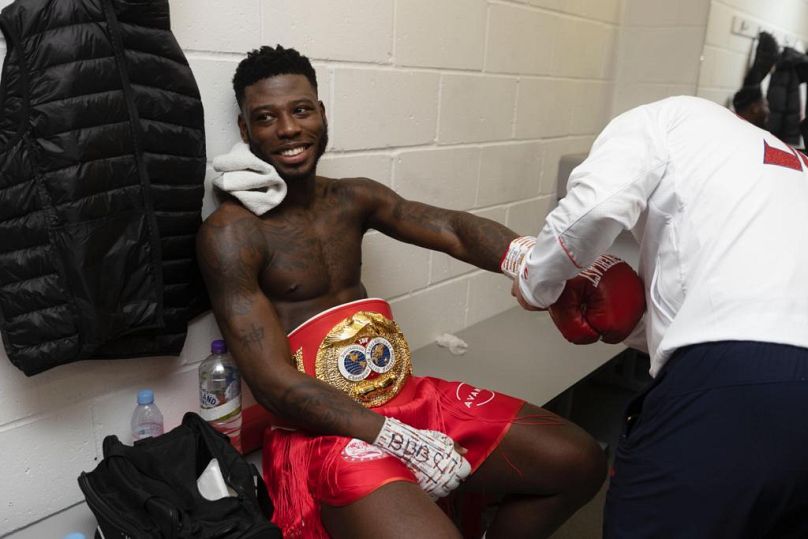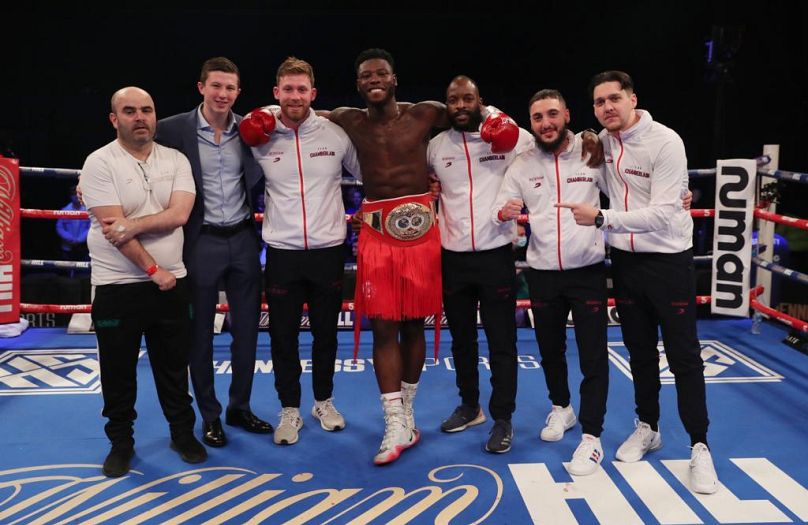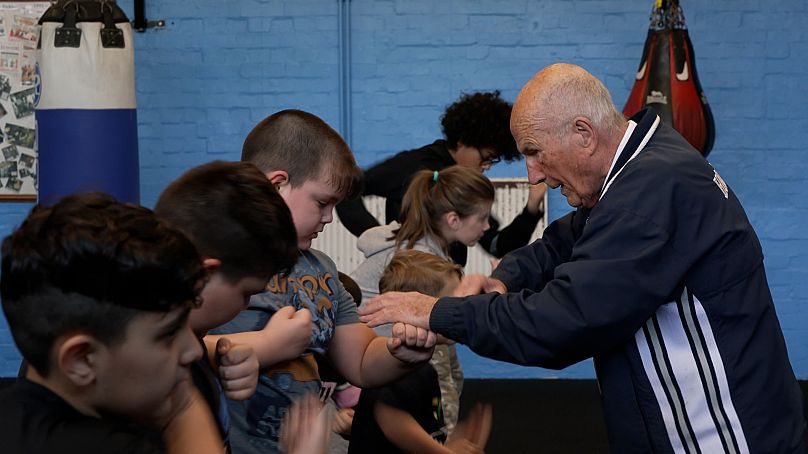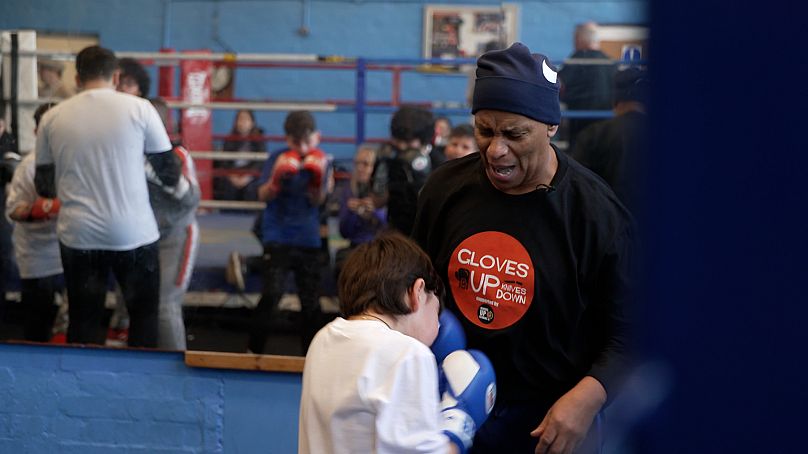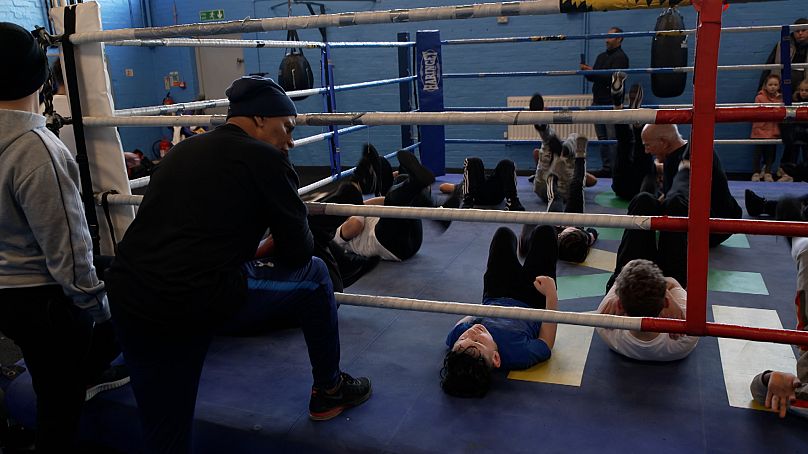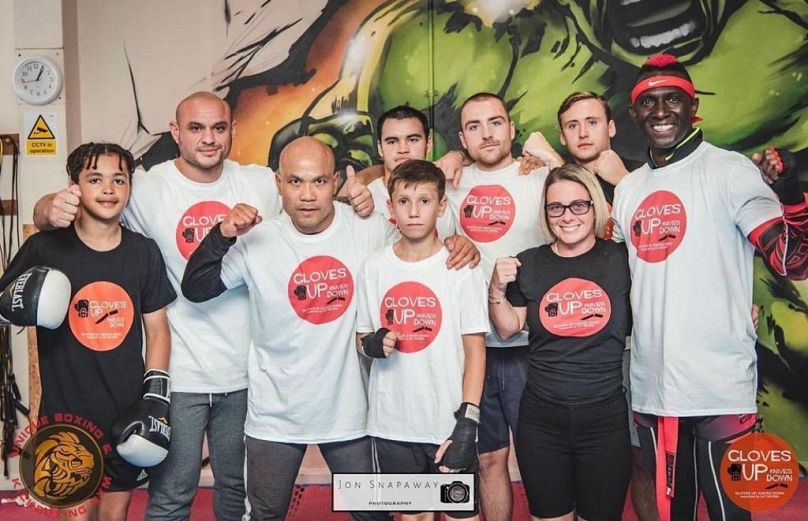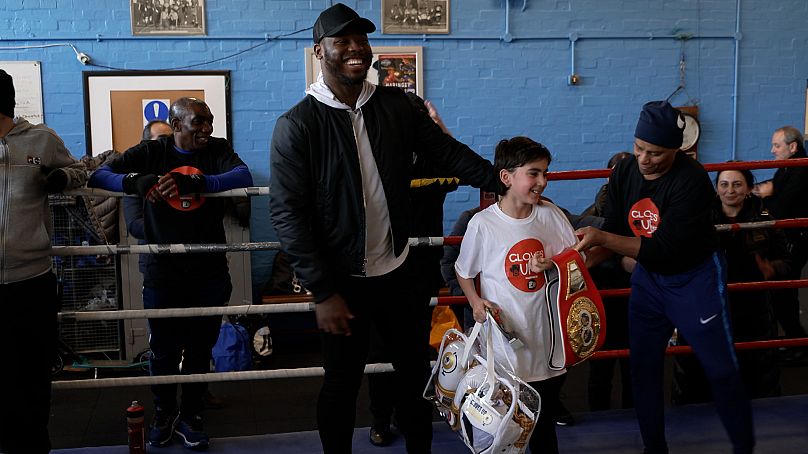"It's about guiding them, it's about making them happy. It's about inspiring them. If I can convince one child to at least change their life, to change their way of thinking, then I'm doing my job."
SCENES shines a spotlight on youth around the world that are breaking down barriers and creating change. The character-driven short films will inspire and amaze, as these young change-makers tell their remarkable stories.
The sport of boxing has been a lifeline for Isaac Chamberlain, despite being punched multiple times in the face. Growing up on a housing estate in Brixton, south London, the professional boxer had to navigate life through poverty, gang violence and knife crime.
"A lot of my friends now are in jail and some of them have passed away. But when you're going through it, at that time, you don't really think of it as dangerous, just what you grew up in," Isaac explains.
When Isaac was 11, his 16-year-old cousin, Alex Mulumba, was stabbed to death by a rival gang. Fearing Isaac was going down the same path, his mother brought him to the local boxing gym, hoping to change his trajectory.
"The sweaty gym walls, the bags, the smelly gloves, it was just a surreal moment for me. I'm seeing people getting punched in the face, and no one's getting in trouble. I was thinking, 'What is this?' I literally just fell in love with it," Isaac tells Scenes.
Becoming a professional boxer
For the first time in his childhood, he received praise and compliments from the coaches. "They would always say, 'Oh, you can be a champion, you can be a world champion'. I never heard those words of encouragement from teachers, from my parents, no one. So I kept coming back and that's what really motivated me."
With a newfound purpose, Isaac stayed out of trouble. After nine years of gruelling training, he had grown from a shy boy to a confident athlete. On January 31, 2015, aged 20, he made his professional debut, defeating the Tanzanian cruiserweight boxer Moses Matovu in a four-round points victory. "When I started, I had low self-esteem, but boxing gave me self-confidence. Boxing allowed me to express myself. I would say boxing gave me a lifeline," he recalls.
Today, Isaac is 28 and his career is flourishing. He has only lost one of 15 professional fights. Isaac strongly believes that boxing changed his life and the sport has the ability to help others. Joining forces with the grassroots organisation Gloves Up Knives Down, he works as an ambassador to encourage young people to get off the streets and into a ring.
"I'm just trying to help the community, because of the talent that God gave me, I definitely want to give back. So other people can get an opportunity to find out what their gifts are," Isaac states.
Gloves Up Knives Down
The social enterprise Gloves Up Knives Down was founded in 2019 to support youth living in communities affected by knife crime. "We started as an initiative trying to raise the awareness of knife crime in London. Using boxing as a conduit, as an alternative to people possibly thinking about going out on the streets and picking up a knife," explains David Edward Edgell, Co-Founder of Gloves Up Knives Down.
"It's a societal issue. Gangs come into that, drugs come into that. It's not something that we get involved in. We're not qualified to do that. We just focus on getting young kids and introducing them to boxing," he adds.
London record-level knife crime
In 2021, London recorded its worst-ever annual death toll from teenage homicides, with a total of 30 boys and young men killed. The youngest victim was a 14-year-old boy horrifically killed with a sword. Most of those who died were victims of knife crime and involved in gang-related violence. According to the Metropolitan Police, around 200 identified gangs are in the British capital.
Gloves Up Knives Down is a registered charity whose ethos is 'preventative intervention'. They believe the discipline of boxing can allow young people to channel their energy in a more productive and positive way.
"If anyone spent two hours in the boxing gym, you know that you're going home to sleep, and as simple as that sounds, that's such a good deterrent on keeping people on the straight and narrow," explains Joe Brett, a coach at Gloves Up Knives Down. "Boxing takes discipline, it takes hard work, and very quickly you realise, your interpretation of what a tough person is will change," he adds.
'Embraced by a different kind of family'
The organisation sets out to build young people's physical fitness and mental well-being and help create stronger communities. "You have to go through a very rigid structure. You have to respect your opponent. You have to respect your trainers and there are rigorous protocols," says David.
The charity works with communities primarily across London to increase access to boxing facilities. Through donations and merchandise sales, they can provide boxing kits and training sessions to young people in disadvantaged areas.
"It's so important for these kids to know that they have someone believing in them, especially in a place like a boxing gym because it's hard out there," states Isaac. "This is what Gloves Up Knives Down is all about, that you can go and be embraced by a different kind of family. There's a lot of respect in here and everybody supports one another as well," adds David.
Gloves Up Knives Down believes a multi-disciplinary approach is needed to tackle the root cause of knife crime. Over the years, the organisation has witnessed the positive impact boxing has had on young people's lives, providing them with life skills that can be used outside the boxing gym.
"It's about guiding them, it's about making them happy. It's about inspiring them. If I can convince one child to at least change their life to change their way of thinking, then I'm doing my job," says Isaac.













